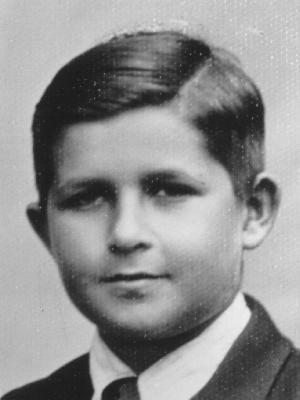
Natus, the son of Rena and Mark Weissblatt, was a thirteen year-old schoolboy when the Germans occupied Warsaw in September 1939. Warsaw was a large, cosmopolitan city, home to Europe's largest Jewish community. His father was one of the few Jews who was permitted to work for the Polish government. Natus's mother gave private Hebrew lessons, and his grandfather was highly involved in the Jewish community. They lived in an affluent area of Warsaw. Natus was an outstanding student. Part of a large, loving, and highly educated family, Natus had a comfortable, secure early childhood.
In October 1940, Natus and his family, along with all the other Jewish residents of the city, were forced to leave their homes and to live in a ghetto. On November 15, after an 8-foot wall was built around the area, the Jews of Warsaw were cut off from the rest of the world. Over 265,000 people were packed into apartments within 73 streets. That number would soon grow by another 200,000.
Lacking money and the means to earn it, most residents were quickly impoverished. Food, medicine and heat were inadequate. Thousands died from starvation, exposure and disease. Children often risked their lives to smuggle food into the ghetto so that their families could eat. Yet, amidst all the horror, schools and other cultural events were organized.
In July 1942, the Germans began rounding up and deporting ghetto residents in massive raids. Few were exempt. Packed like cattle into freight cars, they were sent to the nearby Treblinka death camp, where most were immediately taken to the gas chambers and murdered.
By September 1942, only 60,000 people, mostly young men and women, were left. They were the last remnants of their families and they resolved to fight the Germans. On Passover eve, April 19, 1943, the Germans began what they believed was to be the final round-up and deportation. Instead they were met with organized, armed resistance. The Germans began to systematically burn the buildings in order to force people out of hiding. Armed mostly with grenades and other incendiary devices, the young Jewish fighters fought the Germans, house by house, for almost a month. The Germans soon turned the ghetto into one great burning torch. On May 16, 1943, it was over.
Nothing is known of the fate of Natus and his family after they were forced into the ghetto and cut off from the world.

